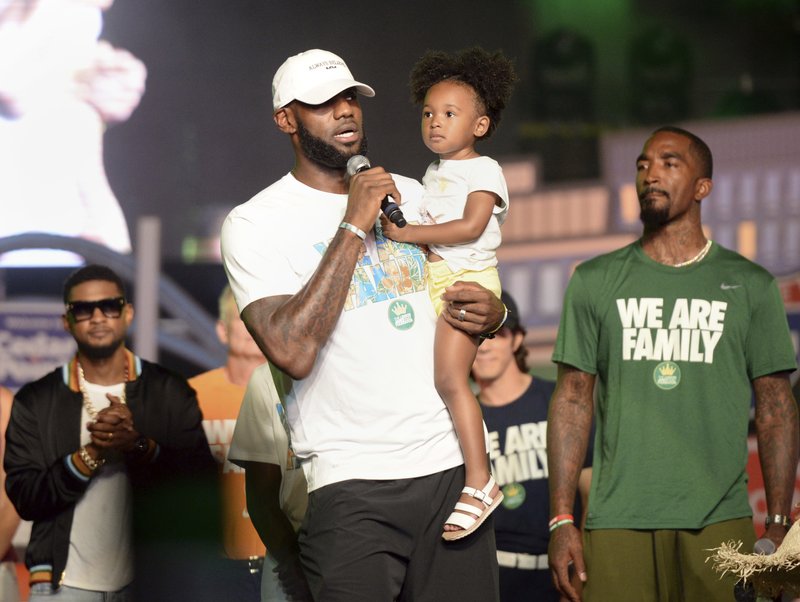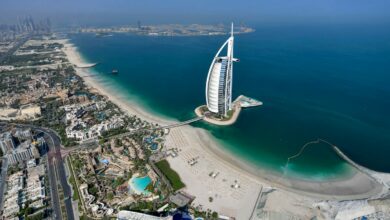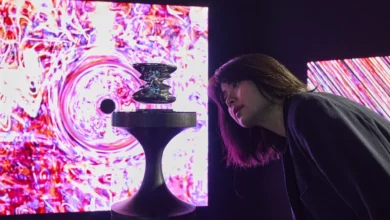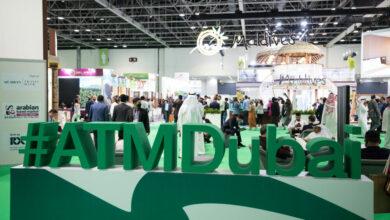
At Dubai’s Black Tap restaurant, the Americana doesn’t stop at the hamburgers cooking on the grill or hip hop pumping from the speakers. It’s also being poured out, one pint at a time.
The new restaurant stocks Dubai’s most-extensive selection of American craft beer, part of a major $23.5 billion market for customers wanting a different style of ale.
It represents a new scene for Dubai, long known as the Manhattan of the Mideast, with chic skyscraper bars serving the fanciest of cocktails while the typical tap offers only the standard lagers.
That’s starting to change, with establishments like Black Tap and Dubai’s two main distributors increasingly stocking American craft beer, breaking new ground among Gulf Arab nations, several of which ban alcohol sales entirely.
“In such an eclectic city, we should have such an eclectic range of beers to accommodate instead of just the same beers that you can get all around the world,” said Eric Ballard, the group beverage manager for Sunset Hospitality, which runs Black Tap.
For wine aficionados, teetotalers or those otherwise unaware, a craft brewery is a small, independent beer producer. After World War II, American beer production largely came from major companies. But by the end of the last century, more craft brewers began operations in the U.S.
In 2016, craft beer sales represented about 12.3 percent of all beer sales in America, according to the Brewers Association, a Colorado-based trade group. The beers come in a variety of styles from light to dark, though higher-alcohol content styles like hoppy India pale ales are a popular choice.
“Your cans of High Life, your cans of PBR, while that’s cool during college, you want something that tastes a little better afterward,” said Ballard, referring to two mass-market American lagers. “You become a bit more discerning and your palate becomes a bit more defined.”
That movement didn’t immediately take hold however in the United Arab Emirates, home to nearly 1,500 bars and pubs, according the most recent count by research firm Euromonitor International. That may not seem like a large number of bars, until you consider Saudi Arabia, Kuwait and Iran ban the purchase of liquor and beer. Even neighboring Sharjah, another of the United Arab Emirates’ seven sheikhdoms, bans it.
Liquor and beer sales help drive tourism to the UAE and particularly to Dubai, the home of the long-haul carrier Emirates, the world’s tallest building, an indoor ski slope and a number of architectural marvels. Dubai also takes in a 30 percent tax on every drink sold.
Even so, Dubai primarily has been known as a mass-market suds and cocktail town up to this point.
“An increasing number of professional mixologists are relocating to Dubai due to its developing cocktail landscape,” Euromonitor recently said. “Consumers patronizing restaurants and bars are increasingly aware of this and are willing to learn how to pair their food.”
Dubai is home to several successful bars focusing on Belgian beers, a big hit among its European expatriate community.
However, Heineken lager still dominates beer sales in the UAE. The Dutch brewer holds a 20 percent market share of alcohol sales by volume overall, according to Euromonitor. But it too may be concerned about the rise of craft. It recently introduced a specialty beer called H41 in Dubai after putting it in select markets in Europe.
Shipping the specialty brews can be a challenge. Among the newest beers on tap at Black Tap are two from Rogue Ales, a Newport, Oregon-based craft brewer some 12,250 kilometers (7,600 miles) away from Dubai, the only location it sells to in the Mideast. It ships its kegs of Dead Guy Ale and American Amber Ale by refrigerated containers and keeps them cold in warehouses on arrival to ensure their quality.
“2017 was the right time to launch the brand in the area,” Rogue’s President Brett Joyce said in a statement. “We’re excited to be in the Dubai market.”
But discussing alcohol even in Dubai remains tricky in part over concerns about Islamic propriety. Dubai’s two main alcohol importers, the Emirates Group’s Maritime and Mercantile International and Rogue partner African & Eastern, did not respond to repeated requests for comment from The Associated Press. Both now sell American craft beer.
Advertising alcohol outside of bars is prohibited, leading to linguistic and visual subterfuge. Radio announcers refer to bottles of “bubbly” or “grape” being on hand for the extravagant Friday brunches at luxury hotels for which Dubai is known. Lifestyle magazines routinely feature lifeless, empty pictures of new nightclubs with liquor bottles carefully hidden from view.
At Black Tap, however, Emiratis in traditional robes regularly enjoy meals or massive milkshakes, mixing into the late-night crowds of beer drinkers. Sunset Hospitality has hopes to expand Black Tap into other countries in the Gulf, including those where it would only be a restaurant due to alcohol restrictions, Ballard said.
“We want to create this movement of American craft that’s happening all over the world and then bring it to such a multicultural city, such as Dubai,” said Ballard, who considers his hometown to be Granby, Colorado. “People are looking for flavors, they are looking for something different.”




